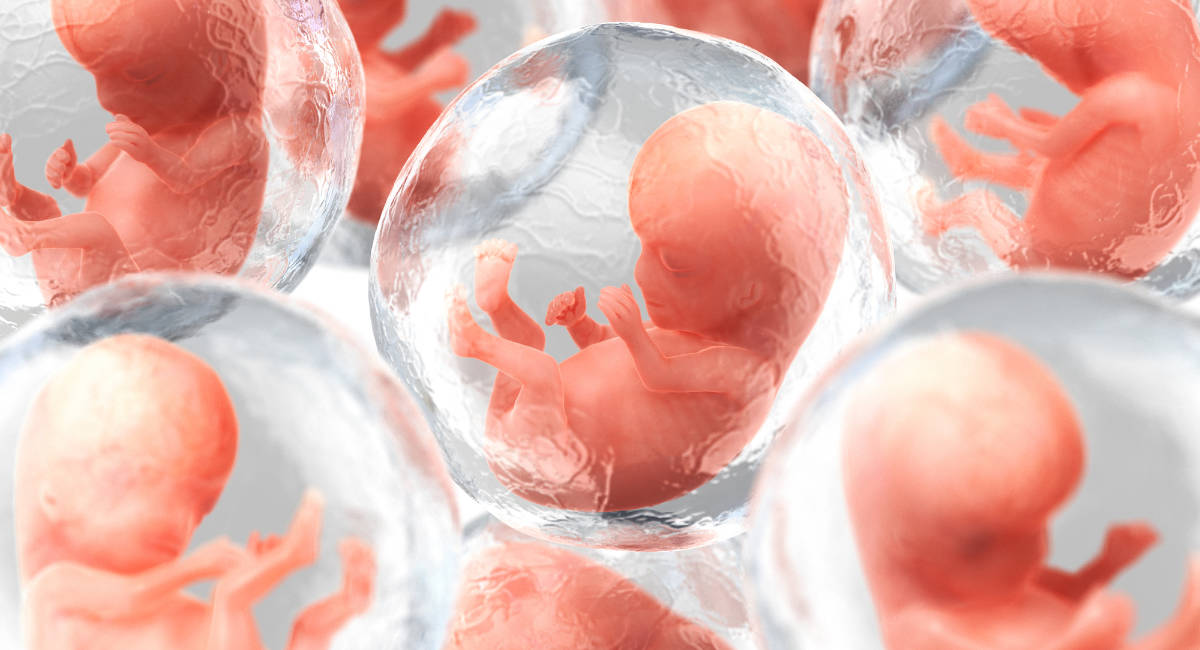In an article published as part of Wired’s Next Normal series, writer Leo Kim discusses the idea that preferring to have biological children instead of adopted children may no longer be viewed as moral.
Creating children with no biological connection
Kim bases his argument off of the fact that the use of in vitro fertilization (IVF), gestational surrogacy, and gamete ‘donations’ has risen in recent years. He argues that this proves that being biologically linked to your child, or to the baby you are carrying, is no longer a given — and no longer necessary.
Interwoven into the use of such means of assisted reproductive technology (ART) is often the understanding that any embryos who test positive for genetic conditions such as Down syndrome would be automatically destroyed. Eliminating an embryo — a human being — due to a diagnosis would, says Kim, ‘prevent harm.’ Doctors and parents are, therefore, ‘preventing harm’ by preventing certain embryos/children from being born. It’s Kim’s attempt to put a positive spin on the eugenic practices tied to reproductive technologies.
Kim then uses the eugenic practices often involved in ART to conclude that parents aren’t really all that invested in having a biological child — they are invested in having a healthy newborn. They are, after all, willing to go as far as to use someone else’s egg or sperm to have a baby, thereby raising someone else’s child — with no biological connection to them — just as in adoption. He argues that because so many people are willing to use ‘donor’ sperm or eggs or to use a surrogate, perhaps no one should have a biological child unless it is to ‘prevent harm.’
“[W]e have converged on the idea that if biology is to be a factor at all, it should only be considered insofar as it prevents harm and suffering,” writes Kim. Of course, having a biological child doesn’t prevent any harm realistically, so according to this theory, no one should have biological children.
What not just adopt?
Kim is right that more people should be open to adoption. Society shouldn’t be moving towards more ART and IVF, but less. Rather than creating children through artificial means and potentially destroying countless lives, couples should opt for adoption. But that doesn’t mean wanting biological children is immoral, especially when it comes to what’s in the best interest of the children.
Kim cites ethicist Tina Rulli, who argues that the gestational bond is not the “be-all, end-all for mother-child bonds: ‘mother-child attachment in infant adoptions occurs readily, and there is no difference in the quality of the attachment'” (emphasis added). This can be true for adoptive families, but Rulli is specifically speaking about infant adoptions, and Kim is ignoring the hundreds of adoptions of older children that take place, especially those through the foster care system. Many of those children are not infants.
There are 400,000 children in foster care, but the goal of foster care is not adoption — it’s reunification with the biological family. Only when it becomes impossible for children to be reunited with their biological family are they placed for adoption. Why? Because biology — family of origin — matters.
Biology matters
A study authored by Nicholas Zill and W. Bradford Wilcox found that adopted children, despite being placed with highly educated parents with above-average incomes, have more academic, behavioral, and mental health challenges than children raised by their married, biological parents.
Adoption is an attempt to repair what a child has lost. It is not a parenting goal, which is why open adoption has been growing in popularity — to keep the important biological bond active.
“There is little question that adopted children are better off than they would be in long-term foster or institutional care,” said the study’s authors. “At the same time, the survey data reveal the complex challenges adopted children face in overcoming the effects of early stress, deprivation, and the loss of the biological family. It is vital that current and potential adoptive parents be aware of the challenges they may face, as well as the eventual benefits that will accrue to them and the child as a result of the love and resources they provide and the struggles they endure.”
Hundreds of studies on the topic have found that children raised by their biological, married parents are more successful than children not raised by their married, biological parents in “almost every measure.” One study published in the National Library of Medicine has shown that “children who live with two married biological parents have lower levels of externalizing and internalizing behavior problems compared to their peers in other family structure, including cohabiting [unmarried] biological families.”
“Humanly speaking, there is nothing more important for personal well-being, positive social behavior, and general success in life than being raised by one’s biological parents committed to each other in a stable marriage. Over the past forty years, a vast body of research has demonstrated conclusively that children are deeply affected by family structure and that married parents are best for children. Any efforts — whether governmental, educational, or ecclesiastical — that mean to encourage human flourishing,” writes Kevin DeYoung, an Associate Professor of Systematic Theology at Reformed Theological Seminary, “must take this reality into account as both an explanation for many societal ills and as a means to the end of hoped-for societal health and vitality.”
Having biological children matters, not just to adults, but to the children. Many adopted children grow up and seek out their biological parents. One example is a man whose daughter was able to locate his biological father and his sisters. His joy is undeniable.
Hannah Grieco was adopted as an infant, and upon giving birth to her son, she said, “I still struggle to explain my emotional response to seeing him for the first time, to feeling a bond like that. It was a tidal wave, taller and more powerful than falling in love. Like I’d missed something my entire life and just then realized it.”
The progressive family
Kim, however, ignores all of this research and claims, “[W]hen contextualized amongst our other modern ethical norms, this preference [for biological children] can feel downright ancient — a vestigial remnant of a different epoch, a fossil no longer animated by the same moral intuitions that gave it gravity in the past.” He paints the picture of children being raised by their married, biological parents as outdated and aims to replace it with a new image of a progressive, modern family.
Kim continues, “[T]he argument that this genetic tie has unique intrinsic value because it is ‘natural’ steps into particularly dangerous territory. It’s precisely this argument that has been used for decades to discredit same-sex couples as unfit to be parents.”
He adds, “Language around what is ‘natural’ and ‘unnatural’ should always be viewed with suspicion.”
There are two points to be made here. The first is that Kim argues that calling biological children and the sex that created them “natural” excludes same-sex couples who can’t reproduce together — and in doing so, reveals the same-sex relationship to be “unnatural.” It’s possible that his claim that wanting biological children is immoral could stem from a desire to push ART as the ultimate goal for reproduction rather than sex. In this, doctors can ‘prevent harm’ by destroying the lives of the disabled and the sick before they are even in the womb. And in addition, same-sex couples won’t feel excluded from the “natural” way of creating babies. If the modern family headed by same-sex parents can’t get pregnant ‘naturally’ with a child who is biologically connected to them, then the desire for biological children should be labeled ‘outdated’ and no one should get pregnant by the “downright ancient” means of sex. Sex would be for pleasure only — not for reproduction.
Second, since research shows that children do better when raised by married, “natural” parents, the theory that the “kids are alright” when raised by same-sex couples doesn’t hold water. But for Kim, removing the natural means of reproduction puts all parents-to-be on the same playing field, and it all boils down to a progressive image of family. It ties into President Biden’s claim: “No such thing as someone else’s child. Our nation’s children are all our children.” To create this futuristic worldview of family, it doesn’t appear to matter what is best for the children.
Kim hopes that “[o]ver time, we will finally come to realize that our relations with each other are not defined by our rudimentary, mechanistic desire to pass on our genes, but rather our capacity for love and care— the expansiveness of our attachments and the depths of our devotion to one another. In short, in all that makes us humane.”
It’s the ultimate setup for a dystopian future.








